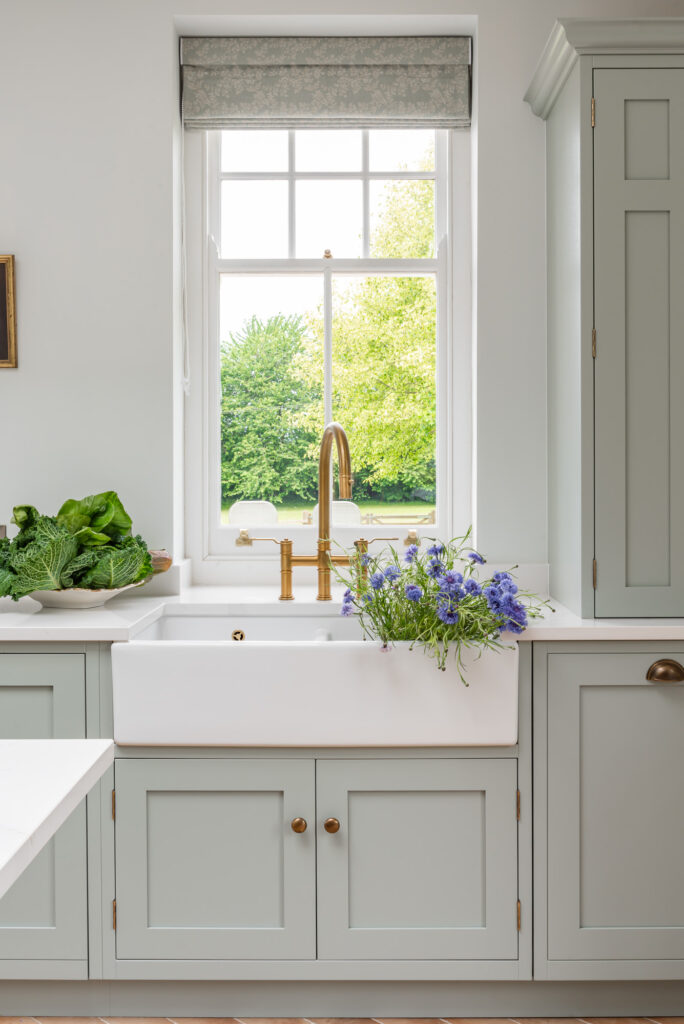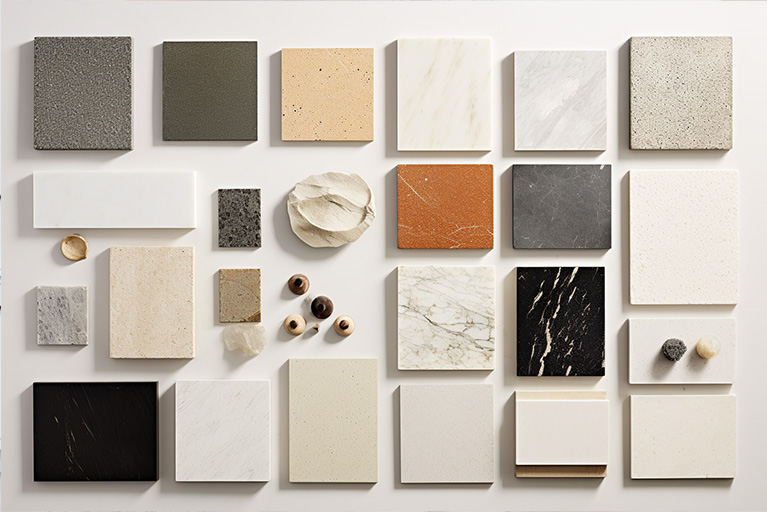
Choosing which stone material for your kitchen work surface can be complex. Now more than ever.
Many individuals believe that manufactured stone is inherently a less desirable option than natural stone. Your personal preference will determine which stone is considered “better.” You can choose the stone that is perfect for your project by understanding how the two types of stones differ from one another.
While processed stones like Quartzforms have been produced using contemporary technologies and specifically developed to fulfil consumer needs, marble and granite have been used for thousands of years. If all you want is a beautiful yet useful kitchen worktop, the question of “which is truly superior” can seem confusing, but it is crucial.
Here, we break down price, durability, colour, and source to help you make the right choice.
Which one is more affordable?
Budgeting is crucial. Many customers are shocked to learn that they may choose between high-quality engineered stones like Quartzform worktops and natural stones like granite and limestone at an affordable price.
Which one lasts longer?
Stones, whether man-made or natural, are solid-as-a-rock and extremely difficult to chip, shatter, or destroy. Both are anticipated to last at least ten years, and many manufactured stones have ten to twenty years or even lifetime warranties. Natural stone may have the advantage if you’re looking at a century or more—it has undoubtedly been put to the test more rigorously!
What about the colour?
Although natural stones come in more colours than you might anticipate, such as greens, yellows, reds, and blues, they can’t compete with the sheer variety that inventive engineers have created with stones like Quartzforms. The best option for kitchen countertops is engineered stone if you want them to stand out.
Which one is better for the planet?
People frequently cite the environment as a significant justification for selecting natural materials over manufactured or processed ones. Even while some choices are obvious, this is only sometimes the case. The environmental issue is complicated in stone working, so you’ll have to choose a priority. Consider natural stone as an example, which is found in quarries worldwide and frequently needs to be transported over great distances to reach its final usage point. Stone requires a lot of fuel to move because it is heavy. On the other hand, designed stones may travel a shorter distance because they are frequently manufactured in Europe. Choices?
Granite
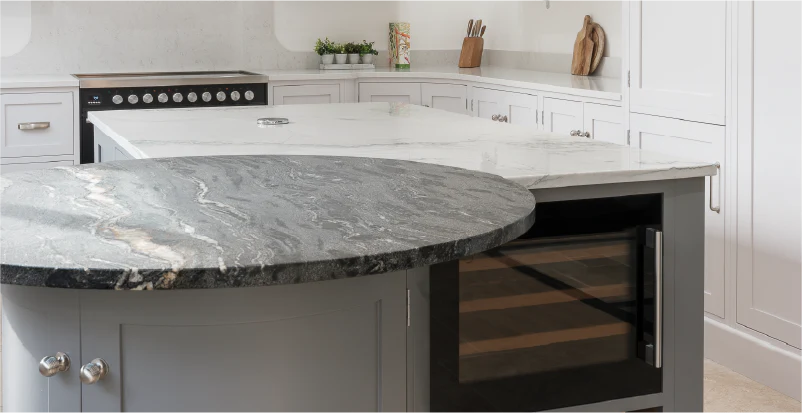
Anyone may pick a worktop that complements their style thanks to the variety of colours available in granite, a natural stone. Your worktop is simple to clean because of its stain and heat resistance features. Granite tops must be sealed yearly to maintain their brilliance and stain resistance.
Marble
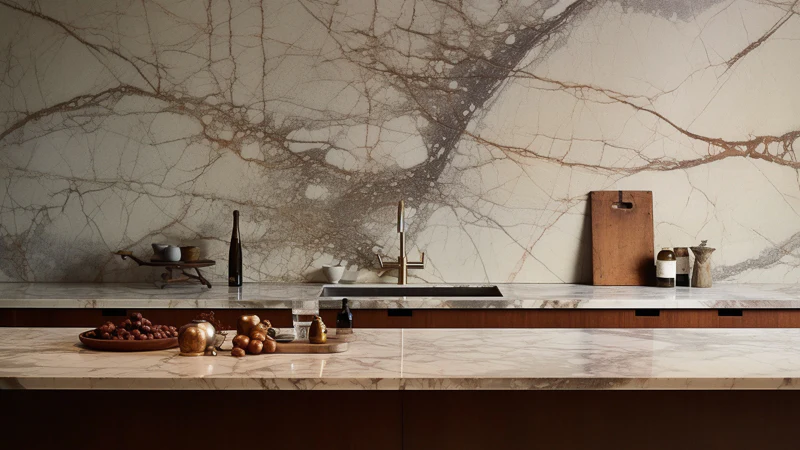
Marble is a natural stone, just like granite, and no two slabs are alike. Your counters will be distinctive. Although marble countertops are difficult to keep clean and cannot have acidic materials placed on them, they add a contemporary, lovely touch to your home, which is why many homeowners choose this particular stone.
Quartz
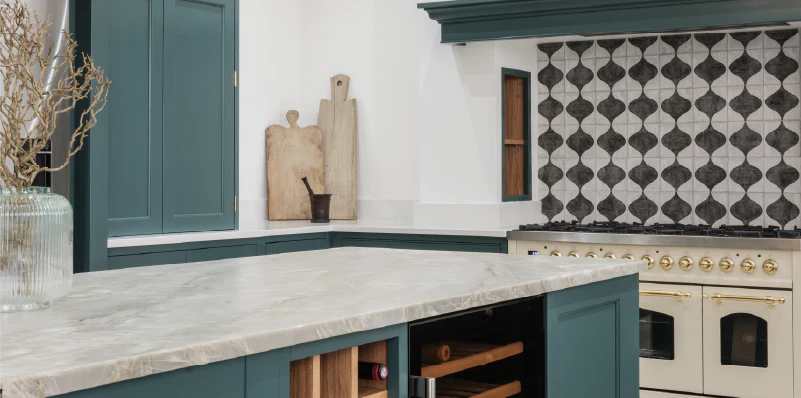
This artificial stone can be created in almost any colour, shape, and size. High anti-scratch characteristics are present in quartz surfaces. While it can withstand a certain amount of heat, you shouldn’t set any hot cookware down directly on the work surface. Soapstone surfaces are the best option for anyone looking to give their property a period feel. Although this sturdy natural stone scratches quickly, with time, it adds to the antique appearance and feel.
Overall?
Man-made surfaces are preferred because they are more stain-resistant. All available options for manufactured countertops are heat, stain, and chip-resistant. But, like with all counters, you should refrain from cutting or using heat on them.
Natural stone tops may be cleaned as easily as man-made ones if you take the proper precautions. Natural stone is porous, but you can easily prevent stains on your countertops by routinely sealing them. Furthermore, sealing natural stone only needs to be done once a year, which is excellent news.
In homes across Britain, stone countertops come in natural and artificial styles and have a variety of advantages and disadvantages. Ultimately, the decision is yours.
 Bespoke made in 10-12 weeks
Bespoke made in 10-12 weeks  National Installation
National Installation  Worldwide Shipping
Worldwide Shipping 